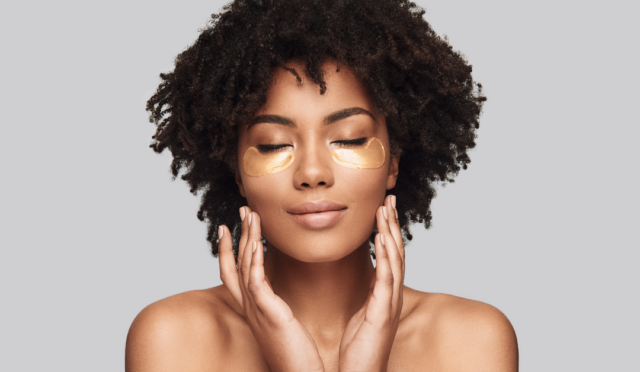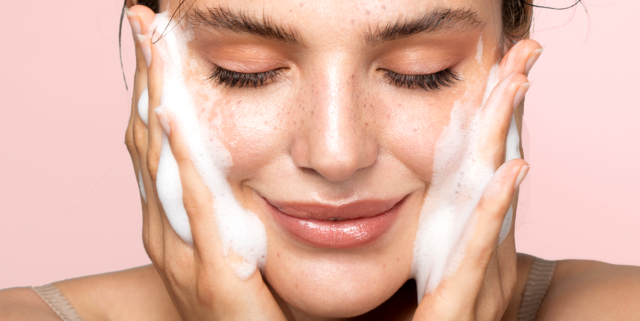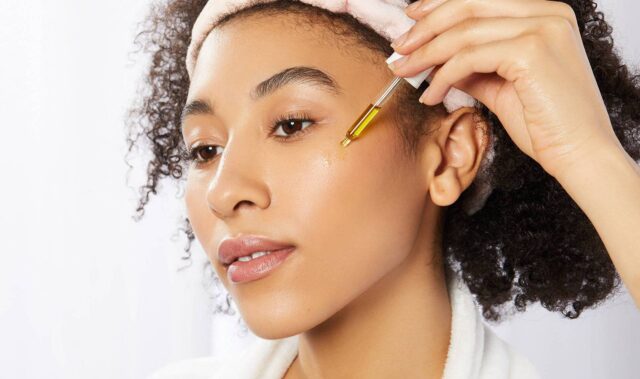
Having healthy skin is the key to maintaining your overall health and well-being. It not only gives you confidence and helps you reflect a more youthful look, but also aids in protecting your body from pathogens and toxins inside and out.
To ensure that your skin is in its optimum condition, it’s essential to practice good skincare habits such as wearing sunscreen, washing with the right cleanser regularly, moisturizing, and avoiding certain substances like nicotine and alcohol.
Benefits of Skin Care

Taking care of your skin on a regular basis has both short-term and long-term benefits. Proper care helps keep your complexion looking healthy and clear while reducing the visible signs of aging. It also helps prevent breakouts, clears away acne, and reduces inflammation caused by inflammatory conditions such as eczema and psoriasis that require special treatment like using Eczema Cream. The benefits include:
- Better Skin Tone – Exfoliation can expose a more even-toned complexion by sloughing away dull dry skin cells to reveal newer softer cells below.
- Less Irritation– Taking time for yourself can help reduce stress levels, minimize inflammation, and promote a calmer outlook on life.
- Sun Protection – Sunscreen can help protect against harmful UV rays that cause sunburns and wrinkles over time. Make sure to apply sunscreen whenever you’ll be exposed to direct sunlight for extended periods of time.
- Reduced Signs of Aging – Regular exfoliation helps keep wrinkles at bay by removing dead cells before they accumulate around the eyes, cheeks, or other areas of the face where wrinkles may form due to loss of collagen and elasticity with age.
- Smoother Skin – Cleansers are designed to rid your face of excess oil, sweat, or dirt that can clog pores leading to blackheads or breakouts if left overnight. In addition, gentle moisturizers provide an additional layer of protection between pollutants in the air and your face allowing for better hydration that contributes to a smoother-looking reappearance year-round.
Types of Skin Care

The most effective solutions are individualized and may require a combination of different approaches. The first step is identifying your skin type: normal, oily, combination, dry, or sensitive. This can be done by washing your face with a mild non-soap cleanser and observing how your face reacts to it. To further assess the condition of your skin, consider factors like a reaction to environmental elements and overall suppleness. Armed with this information, you can build an effective daily regimen that addresses all of your needs.
1. Cleanser
Cleansers should remove dirt and bacteria without drying out or irritating your skin. For most people, this requires the use of a mild liquid facial cleanser that foams or has a creamy texture when applied.
2. Exfoliant
Exfoliating removes dead skin cells from the surface layer for brighter-looking skin and smoother texture. The best exfoliators are not overly abrasive or damaging to the face even though they provide deeper cleaning powers.
3. Toner
Toners balance irregularities in oil production while removing traces of makeup or other impurities that are still on the surface after cleansing. Look for options that calm and soothe such as rose water mist mixed with aloe vera juice and green tea extract which provide antioxidant benefits to protect against premature aging associated with neglected areas on the face like the eyes and neck region.
4. Moisturizer
Moisturizers seal moisture into the outer layers of our epidermis so it remains supple throughout the day without becoming overly dry or greasy in certain spots on our face (like around nose creases). Make sure all products are hypoallergenic as well as pH balanced and formulated specifically for our personal needs based on the type identified earlier – this will help ensure maximum absorption potential when applied directly onto current ailments/concerns present during application time (breakouts etc).
How to Choose the Right Products

Skin types vary widely, ranging from very dry and sensitive to oily with large pores. If you have dry skin, you may need additional moisturization while those with oily skin will benefit from oil-free products that help reduce the appearance of pores. There are also special considerations for combination skin types (dry and oily areas), as well as sensitive or acne-prone skin that requires a more delicate approach.
It is important to pay attention not only to ingredient labels but any reaction you may have to particular products as well. Fragrances can cause sensitivities; some individuals with eczema should also avoid certain natural ingredients such as essential oils, which can irritate their complexions further. In some cases, extra hydration is necessary in which case facial oils can become a part of the beauty kit in helping you achieve healthy glowing looking skin.
Additionally, age is another factor when choosing skincare products — younger individuals require different antioxidation than mature people whose bodies naturally slow down the production of collagen and elastin (which causes wrinkles). Selecting age-appropriate creams can help combat signs of aging offering good coverage while helping even out complexion, however, it’s important not to overuse them lest they create or aggravate other issues like dryness or dullness — especially during winter months when temperatures might be too low outdoors.
The Impact of Diet and Lifestyle

Your diet plays a key role in keeping skin youthful and healthy. What you eat has the power to boost collagen production and maintain a glowing, youthful-looking face. Eating plenty of whole-grain carbohydrates, healthy fats, and lean proteins nourishes the skin while providing essential vitamins and minerals. Incorporating fresh fruits, vegetables, and nutrients like omega fatty acids helps improve complexion issues such as dullness, dryness, redness, or breakouts.
In addition to dietary choices, our lifestyle decisions play major roles in skin care – from how much water we drink to how often we exercise and manage stress levels. Hydration is key for healthy-looking skin; drinking plenty of water throughout the day helps replenish lost moisture for a plumper-looking complexion while helping cells perform better so they can rid our bodies of toxins more effectively.
Exercise boosts circulation which improves blood flow delivery of oxygen to nourish cells – essential for preventing wrinkles – while gentle movements also stimulate lymphatic drainage which helps cleanse cellular debris from the body for a clearer-looking complexion. Leading a stress-free lifestyle is especially beneficial as high levels of cortisol trigger an inflammatory attack on collagen leading to wrinkles or sagging appearance or excessive oil production leading to acne flare-ups.
Conclusion
As you can see, taking care of your skin is important for both your appearance and your overall health. A regular routine that includes nourishing and protecting skin with the appropriate products, avoiding sun damage, and quitting smoking can help promote a healthier-looking face as well as prevent premature aging, hyperpigmentation, and wrinkles.









